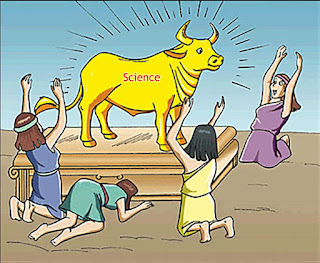In the modern age there are many seemingly intelligent people who are "true believers" in establishment science.
That is: they accept the truth of what is promoted as the "consensus view" among scientists, without questioning or digging deeper.
These people believe that establishment science is free of political or financial pressure to promote a certain view above others.
They believe that it is impossible for science to become corrupted due to built in safeguards and so they accept whatever notion mainstream science promotes through the mass media.
There is another group, generally more broadly educated (particularly in the history and sociology of science) than the first group, I would suggest, who believe publicly promoted science not only can be corrupted, but that it is corrupted by political and financial concerns, and largely "owned" by them.
As a result, this group takes what is expressed publicly about "scientific consensus" with a grain of salt.
Instead, they look at the vested interests of the players involved before taking their claims too seriously.
True believers in science call these people "conspiracy theorists" for questioning scientific dogma, as they believe science is self-correcting and that any mistaken scientific pronouncement will be soon corrected.
However, this assumption assumes a freedom within the scientific community that many believe just doesn't exist.
They see science as serving vested interests much of the time and being unable and unwilling to change when to do so would be very costly to those same vested interests.
What they see are processes in place to actually shut down alternate opinions and even the studies that disagree with preferred beliefs in the scientific/corporate community.
This can be so pernicious that when much is at stake it proves almost impossible to overturn false scientific beliefs.
Instead, it may take a flood of results that run counter to existing beliefs for anything to change.
By this time much damage may be done.

Comments
Post a Comment